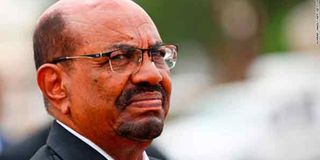Violence on the rise in Darfur after ousting of Sudanese president: UN envoy

UNITED NATIONS. Head of the United Nations-African Union peacekeeping mission in Sudan's Darfur has told the UN Security Council that violence is on the rise in the region after the Sudanese army ousted President Omar al-Bashir.
"Security across the volatile Darfur region of Sudan has deteriorated since last week's military takeover in Khartoum," Jeremiah Mamabolo, joint special representative for the UN-African Union Hybrid Operation in Darfur (UNAMID) said on Wednesday. The peacekeeping mission in Darfur has "remained vigilant" in the face of rising violence, he stressed. Mamabolo said that with one army general already forced out of office in the face of continuing protests, the daily curfew has now been lifted, and political detainees are due to be released, with a nationwide ceasefire now in place. "Yesterday, the Chief Justice and the Attorney General were replaced," he said, adding that the new military leader, Abdel-Fattah Al-Burhan, had announced a "military transitional phase," which would last two years at most, before a handover to civilian control. But protests are continuing, he said, noting that some internally-displaced people in Darfur, where military action by the former president against civilians led to war crimes charges against him by the International Criminal Court a decade ago, had "engaged in violent acts" targeting government locations, and those seen as collaborators with the former regime. "Let me assure the Council that in the midst of all these developments, UNAMID has remained vigilant, maintaining a robust posture, particularly in the Jebel Marra area of responsibility, which is where we have peacekeeping troops," he added.
Mamabolo told Council members that the international community now "has an opportunity to initiate and sustain dialogue with the new authorities in Sudan. This would help create a conducive environment for UNAMID's departure, and the international community's follow-on engagement in Darfur. "The briefing took place less than one week after the ousting of President al-Bashir by the Sudanese military following protests in many parts of the country calling for al-Bashir, who had ruled Sudan for nearly three decades, to step down.
On April 11, Sudan's Defense Minister Awad Mohamed Ahmed Ibn Auf appeared on state television and announced the military's detention of al-Bashir, the suspension of the constitution, and the start of a two-year transitional period to be overseen by the military and followed by elections. A three-month state of emergency was also declared in the country. (Xinhua)



